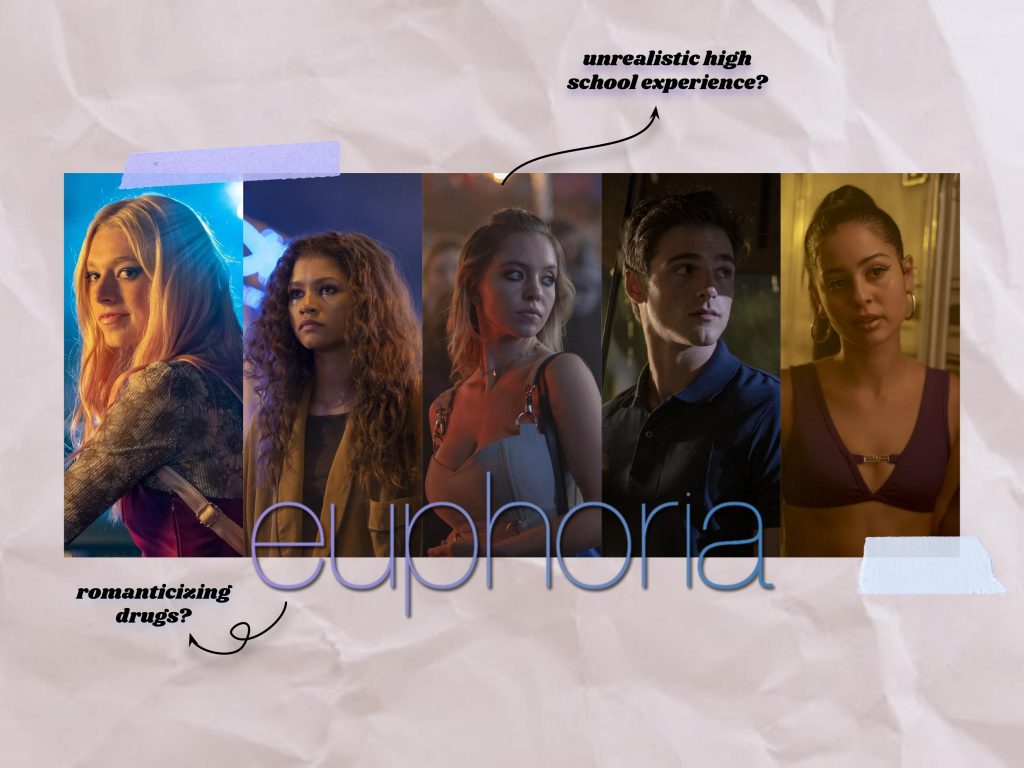*SPOILER ALERT*
(obviously)
The popular HBO Max series, Euphoria, recently released its long-awaited second season, and everybody is talking about it. The plot of the show is centered around a loosely interwoven cast of characters in the turbulent world of the typical Los Angeles suburbia. But how typical is Euphoria, really? The show’s target audience is clear, with most of the main cast playing teenagers in their junior or senior year in high school. Yet, Euphoria takes a bold approach to portraying the teenage experience. Homework is apparently nonexistent at Euphoria High School (as fans of the show have jokingly referred to the show’s setting), instead we see characters get involved in rampant drug use, constant hookups, criminal scandals, and intense parties—with not a single mention of having to study for that APUSH test on Monday.
Of course, it would be naive to suggest that substance use, sex, parties, etc., aren’t a reality in many, if not most high schools. In fact, the show accurately covers other heavy teenage topics like mental health, sexuality, self-esteem, and social media. A scene with one of the main characters, Kat, comes to mind, where she battles with the toxic positivity and hypocrisy of social media, tired of constantly being told to “love herself” as a superficial antidote to the deep insecurity she feels about her body. Her struggles are one amongst many in the show that a teenage audience can find comfort in connecting with.
Therefore, one could argue that it is unavoidable for a teen drama like Euphoria to be over-dramatized for the sake of entertainment. Sure, not all of us can relate to being the target of a late-night police chase or getting kidnapped by a notorious criminal, but at least the show is unafraid to be honest, raw, and represent teenage issues at their core. During the muted social conditions of a pandemic, some could even find escape in the excitement of the show’s events.
However, the scale and intent with which Euphoria presents certain topics should still be open to question. For one, many viewers criticize the romanticization of drug use in the show, particularly with the main character, Rue. Rue’s addiction to drugs is often justified as her way of coping with her father’s death and her mental health issues. Her relationships with drug dealers also paints her situation as somewhat normal, at times even wholesome, when one of the dealers, Fezco, refers to her as “family.” Other unrealistic details include the complete lack of parental oversight or care, with one of the main characters’ moms distributing alcohol at a party herself, making the underage kids promise not to tell their parents. Additionally, the abundance of mansions to party in and unlimited access to drugs are glamorized with Euphoria’s characteristically appealing cinematography and soundtracks.
Overall, the debate is credible on both sides. While it can be jarring to be presented with a multitude of serious issues in one fictional circle of characters, it also means Euphoria has something for every teenager to relate to.
Riddhima Patlollu
Staff Writer
Graphic: Riddhima Patlollu

